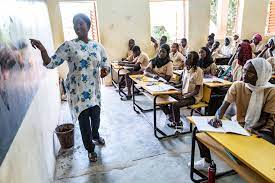An NGO, Safe The Child Initiative (STCI), has called on stakeholders in the education sector to advocate for gender-responsive, inclusive education planning and Tsangaya reforms. This appeal was made by STCI’s Chief Executive, Mr. Abdulganiyu Abubakar, during a stakeholders advocacy and influencing engagement on Friday in Sokoto.
Mr. Abubakar highlighted that STCI, with support from PLAN International EU-INTPA, is implementing a project titled “Strengthening Civil Society to Enhance Education for All in Northern Nigeria.” The project is being carried out in Sokoto State and Adamawa, aiming to address the issue of out-of-school children and support the transformation of Tsangaya education in these states.
The project involves a variety of stakeholders, including community-based groups, civil society organizations, Qur’anic school tutors, and statutory government agencies. Mr. Abubakar also urged Governor Ahmad Aliyu of Sokoto State to appoint qualified individuals to lead ministries and establishments to ensure the project’s success.
Alhaji Buhari Umar, Director of Budget in the state’s Ministry of Budget and Economic Planning, reaffirmed the state government’s commitment to collaborating with donor agencies and other groups to improve the lives of the people. He advised stakeholders to implement strict measures to reduce street begging and establish Almajiri schools and similar religious institutions to prevent the proliferation of out-of-school children and informal gatherings.
Malam Shehu Gwadabawa, Chairman of the Coalition of NGOs in the state, emphasized the importance of understanding and partnerships among government institutions and partners to ensure smooth operations. He assured continued support to collaborating partners to achieve the desired impacts.
The event featured presentations from School-Based Management Committee (SBMC) Chairman, Malam Umar Jabo, Chairperson of the 100 Women Group, Hajia Fatima Lawal, and Malam Muhammadu Maigero, Chairman of Qur’anic memorizers groups in Sokoto state. It also included a Q&A session, discussions on solutions to anticipated challenges, and reviews of education policy documents in the state.








